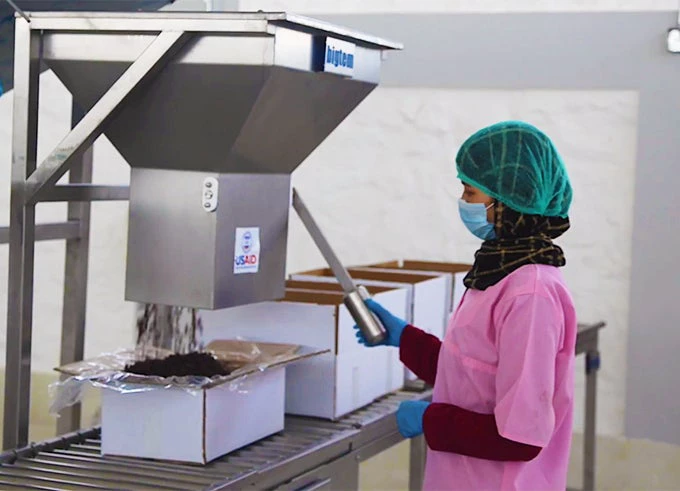
Imagine a state-of-the-art processing plant that harnesses laser-sorting technology to produce a whopping 15,000 tons of raisins a year, linking up thousands of local farmers to international markets and providing job opportunities to women.
To find such a world-class facility, look no further than Rikweda, an Afghan fruit processing company in the Kabul Province that’s well on its way to restoring Afghanistan as a raisin exporting powerhouse—a status the country held until the 1970s when it claimed about 20 percent of the global market.
In Afghanistan’s volatile business environment, let alone its deteriorating security, Rikweda’s story is an inspiration for budding entrepreneurs and investors.
It also is an illustration of the government’s reform efforts to create more opportunities for Afghan businesses to open and grow, which were reflected in the country’s record advancement in the Doing Business 2019 index, launched today by the World Bank.
Despite the increasing conflicts and growing fragility, and thanks to a record five reforms that have moved Afghanistan up to the rank of 167th from 183rd last year, the country became a top improver for the first time in the report’s history.
And Afghanistan is not the only South Asian country this year that took a prominent place among top 10 improvers globally.
India – which holds the title for the second consecutive year – is a striking example of how persistence pays off, and the high-level ownership and championship of reforms are critical for success . Its ranking has improved by 23 places this year and puts India ahead of all other countries in South Asia. This year, India is ranked 77th, up from 100th last year.
The indicators which show maximum improvements in India this year – dealing with construction permits and trading across borders – reflect the results of reform efforts over the past four years and are a testament to the persistence and commitment demonstrated by the government, municipal corporations, and customs agency.
Better business regulations also inspire innovation and technological progress. During my meeting with Madhya Pradesh, I was impressed by the way in which this state government is harnessing the private sector to provide clean and relatively cheap solar power to its schools, hospitals and public buildings. This is a model of development that the Bank has supported and is now helping to spread to other states in India.
And the exciting news for South Asia coming from the Doing Business 2019 report does not end there. The countries of the region collectively carried out 19 business reforms during the past year, with an average of more than two reforms per economy. Strong commitment to the reform agenda is also paying off in Sri Lanka and Pakistan, as indicated in their improved rankings.
Any economy cannot thrive without a healthy private sector. When local businesses flourish, they create jobs and generate income that can be spent and invested domestically. A government that cares about the economic well-being and advancement of the people it represents pays special attention to laws and regulations affecting local small and medium-sized enterprises.
In South Asia, even with the successes of the past years, the agenda of improving business environment remains far from finished . With India being the top-ranked country in the region at 77th place, the countries have a long distance to go to catch up with the front-runners of the Doing Business index, such as New Zealand, Singapore, and Denmark .
In particular, the region can do better in areas such as enforcing contracts, paying taxes and registering property. In South Asia, registering a property takes 114 days compared to 47 days on average globally.
The World Bank stands by the governments in South Asia in their journeys to improve business regulations and create a conducive environment for inclusive and sustainable growth.
In addition to supporting specific reforms through investments, we are carrying out analytical work to understand the bottlenecks and identify opportunities. Examples of such studies include the recent Investment Climate Survey in Pakistan and the upcoming Country Private Sector Diagnostic in Nepal.
I would like to emphasize again the strong need to persist with challenging reforms that can provide more opportunities for businesses to open and grow, allowing people to lift themselves out of poverty and spread prosperity more widely.
We’re looking forward to working with governments in the region to achieve more gains in the coming years.


Join the Conversation